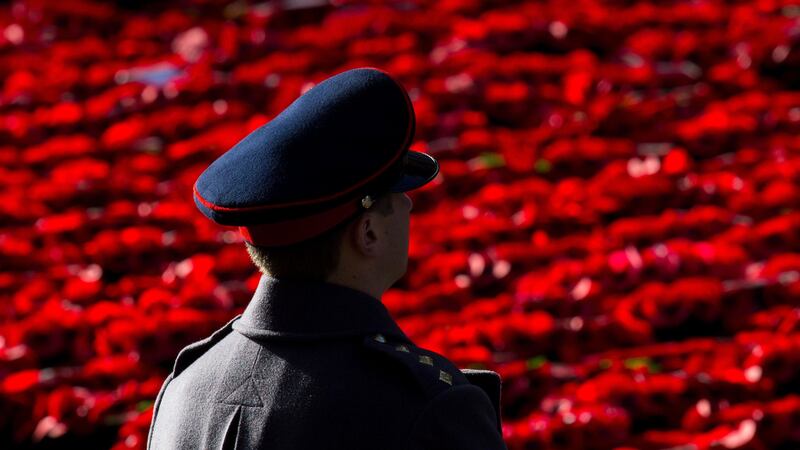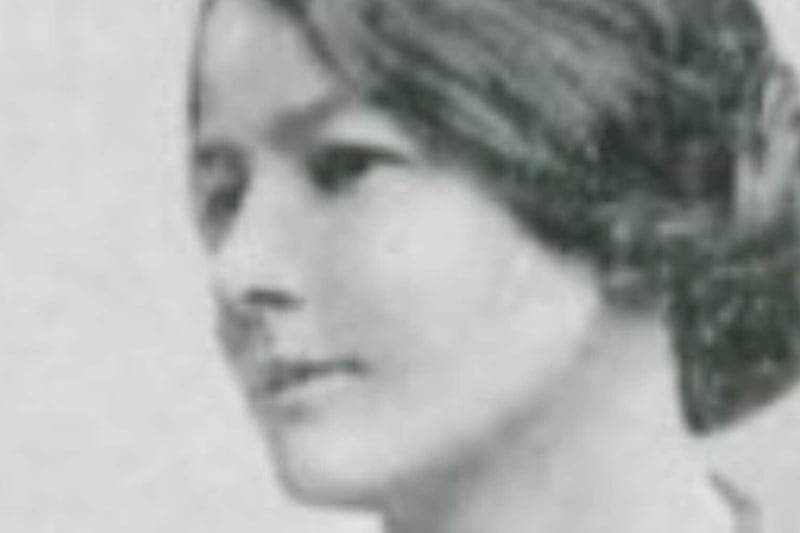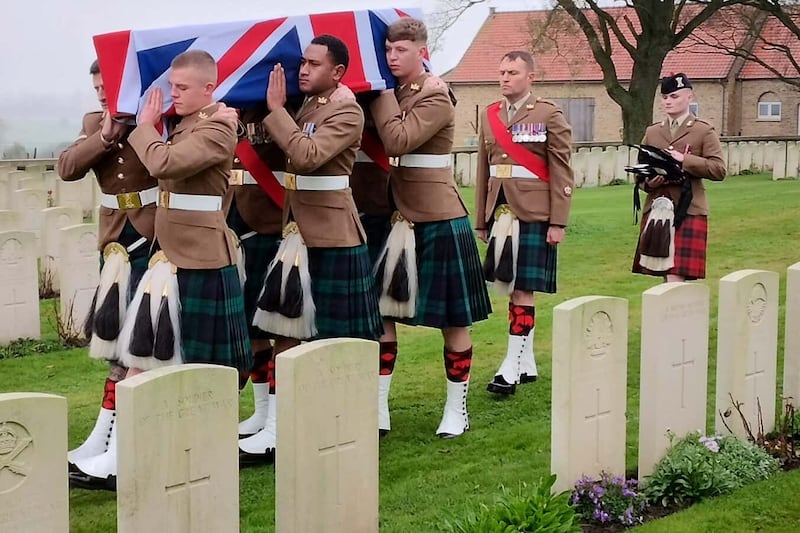"GO placidly amid the noise and the haste, and remember what peace there may be in silence."
In this past, very strange, week it's worth remembering the opening line of the Desiderata, American writer Max Ehrmann's famous prose-poem.
The work counsels us to "avoid loud and aggressive persons; they are vexatious to the spirit" - a suggestion which may prove challenging given that loud and aggressive person-in-chief, Donald Trump, has been elected as the 45th president of the United States.
Trump's win has rightly dominated the media, but in the final days of the US presidential campaign our favourite annual row cropped up again - poppies.
The flowers, which grew in fields scarred by the First World War, were adopted as a symbol of remembrance after the conflict.
The Royal British Legion, which sells poppies around Armistice Day every year to raise money for serving soldiers, veterans and their families, has insisted the poppy is not a religious or political symbol.
That might have been the legion's intention, but of course in the north the poppy is political.
Having a red flower on your lapel in November is, whether you agree with it or not, a marker of community allegiance as well as remembrance.
Yet over the last few decades poppies have come to represent an odd sort of alleged patriotism.
To the football associations of Northern Ireland, England, Scotland and Wales, the poppy also seems to have become a symbol of 'who's the most respectful'.
On Friday, England and Scotland defied a ban from Fifa, world football's governing body, and wore poppies on black armbands during a World Cup qualifier.
"It's part of our identity as a nation," blustered interim England manager Gareth Southgate.
British prime minister Theresa May, quick to weigh-in on a daft issue that will score points with Tory core voters, made a compelling argument which could be summarised as "but themmuns".
"Before they (Fifa) start telling us what to do, they jolly well ought to sort their own house out," said the politician still trying to negotiate a Brexit that doesn't end in economic catastrophe.
Northern Ireland and Wales, opting not to risk sanctions from Fifa, compromised by wearing black armbands - and still complained about it, as if not being allowed to wear a red flower was a deep affront to their players' dignity.
Which it must be, given that the wearing of the poppy on football shirts is a long tradition spanning back, oh, a handful of years.
England players didn’t wear poppies on November 12 1946, a year after the end of the Second World War.
Nor did they wear them in previous matches around Armistice Day in 1987 or 2001. Yet in the last few years the poppy has become a litmus test to see who loves the war dead more.
One of the most bizarre sights on television last week was that of cuddly Sesame Street character Cookie Monster wearing the flower on the BBC’s The One Show.
Because nothing is more respectful than plonking a poppy on a character known for his catchphrase "Me want cookie”.
The legion has said the wearing of poppies is voluntary, a personal choice. It's not compulsory.
Deciding not to wear a poppy doesn't mean you're spitting on the memory of the fallen or dancing on war graves in Flanders. Nor does wearing a poppy confer some sort of superior moral status on the wearer.
Although there was no conscription in Ireland during the First World War, 140,000 Irish men joined up to fight.
Around 35,000 died in a conflict that was exceptionally brutal with lengthy assaults to grab just a few feet of land, only to lose it again.
English poet Siegfried Sassoon, who served in the Royal Welch Fusiliers, believed the war was "being deliberately prolonged by those who have the power to end it".
In July 1917, in defiance of military authority, he refused to return to the trenches. "I have seen and endured the sufferings of the troops and I can no longer be a party to prolonging these sufferings for ends which I believe to be evil and unjust," he wrote in a letter to his commanding officer.
The sufferings of Irish men in the trenches have nothing to do with a football match. The sufferings of conscripted English, Welsh or Scottish men have nothing to do with a football match.
Let the dead rest and honour them in the way you personally see fit. Wear a poppy if you choose, or simply remember what peace there may be in silence.








